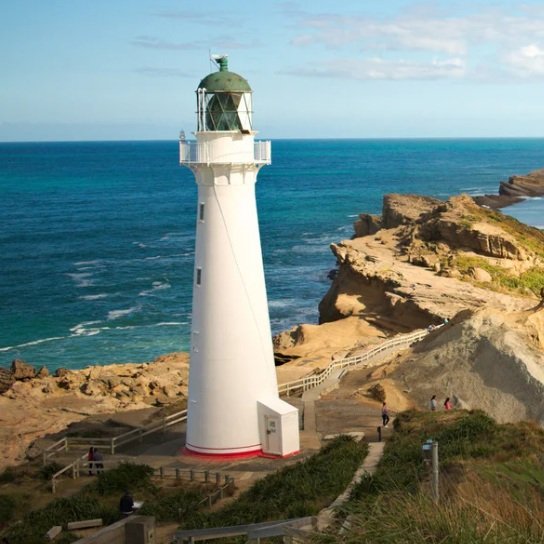Immigration News & Opinion
As Kiwi as a Buzzy Bee
If you sniff around the multitude of social media posts and groups, discussing how a move to New Zealand might work, you will find an unlimited number of guides on how to speak “Kiwi”, why we consider fish and chips (pronounced “fush and chups”), the national dish and a complete history on the trans-Tasman feud over a baked good, made with egg whites (and yes the Pavlova is ours). While these are entertaining and probably useful when you attend your first New Zealand social gathering, they really only scratch at the surface as to what a new life in this country might entail.
Becoming a “Kiwi” is less about understanding the difference between what we might call footwear and others underwear, and more about understanding how your own social cues, norms and traditions might differ to how we do things here. It is about appreciating that a new life in New Zealand is something you work gradually towards, learning as you go, making mistakes along the way and finally coming to a comfortable understanding with.
Nine Minutes
What if I told you, that for one of my clients, his ability to secure Residence came down to whether he may or may not have worked an extra nine minutes per week. Well you might think that sounds a bit ridiculous, but for a client we have been working with for the last few months, that is literally what it boiled down to. What was more compelling that those nine minutes per week, were the difference between being able to live here permanently or having to leave forever, because, given his age, this application was his last chance to make it work.
Well truth is often stranger than fiction and the situation described above is absolutely real, and for one client that nine minute problem has been the cause of significant concern, anxiety and stress.
But why was nine minutes such an issue? Well in this weeks article we take another trip down the INZ rabbit hole, to find out what caused this very bizarre situation, what we did about it and of course (so we dont leave you hanging) the final outcome.
Visa Fee Monopoly
When you are the only game in town, the ability to charge whatever you like is pretty easy and that appears to be how the current Government sees our immigration system, who are in fact, the only game in town. Having a monopoly over the visa process, means they control the pricing and in today’s media announcement from the beehive, INZ has been tasked with increasing almost all visa application fees, effective from 01 October 2024.
None of this is unexpected, given the Minister has been signaling fee increases for some time and in news only a few weeks ago, those discussions were being held at cabinet level. At that time, there were some pretty big numbers being thrown about and what we have been given today, appears to be a slightly watered down version of the initial proposal.
ANZSCO - Time For A Change?
ANZSCO (a better explanation follows) is the statistic reference Immigration New Zealand uses to determine whether your job is skilled and what level that skill sits at. It is a cross-border list of occupations, used by Australia and New Zealand for a variety of things, but features heavily in how visas are processed for those coming in under our skilled categories.
Statistics New Zealand’s introduction to this change made the following comment “The current Australian and New Zealand Standard Classification of Occupations (ANZSCO) is outdated, and no longer meets the needs of either country”. Apart from being a fairly damning critique of the system, it is absolutely spot on. ANZSCO was never really designed to be used in the visa process, but was a conveniently available tool to adopt.
Rules Are For Breaking
I comment a lot on the relevance of “rules” in terms of the New Zealand immigration process and mostly because they are the back-bone as to how the whole system works. Migrants are basic pushed through a mandolin of criteria, rules and policy, and the slices that fall out, should resemble a visa of some description.
However, it is easy to overlook that for most people, their knowledge of how these rules actually work will be limited to tick boxes in an online form or if you go old-school, questions on a paper-based application. Some migrants are brave enough to try and read Immigration New Zealand’s website to see if they can decipher how the process works, but very few applicants find themselves in amongst the weeds of the formal operations manual (most wouldn’t know what that is).
Interim Visas
The humble interim visa, which although usually granted to people without having to apply, is often one of the most complicated visas to understand. Interim Visa are essentially a bridge between your old visa expiring and your new visa being approved. Whilst traditionally used for temporary visa applications, they are now also offered to those applying under certain resident visa categories.
Whilst most people assume that interim visas are automatically issued by INZ, there is actually a bit more to it. The timeframes granted and conditions attached to these visas can also be very hard to understand - so this week we dive in to this and have a look at when and how interim visas are issued, how long they last for and what you can do with them.
Migrant Job Seekers
Yes indeed, it is time to tackle the migrant job search puzzle again, except this time, I have managed to bring in the big guns - in the form of some sage advice from Dawn Headey, an employment specialist who works closely with migrants specifically to tackle this almighty mountain. I roped Dawn in to contributing to this post, because like me, she has a pretty clear understanding of the challenge migrants face, but she also speaks the same language in terms of how to address that challenge.
There is no shortage of people out there, offering “CV preparation” packages to would-be migrants, but in my experience Dawn is one of the only people who actually understands how this process works, and wont just deliver you a template. On that basis, I asked Dawn to add her tips and tricks for migrant job seekers, which I will share below.
Think Big(ger) New Zealand
New Zealand has developed this fascination with employment being the key component in assessing a migrant’s potential value and therefore eligibility to reside here permanently. There is logic to this of course, but could we be thinking bigger in terms of the value that migrants bring and how we actually measure that?
The problem with using just one main qualifying criteria (in this case, having a job here) is that it means we miss out on so many other great quality candidates who are likely to bring so much more value to the country over time. Personally I think New Zealand needs to think bigger in terms of how we attract the best and the brightest to this little slice of paradise.
Work Visa Updates
It seems that ambush policy is the modus operandi for this new Government and on Wednesday, 26 June, the Government rolled out further changes to Work Visa policy - targeted specifically at partners to people here working in lower skilled roles on an Accredited Employer Work Visa.
These changes essentially mean that partners and children of those people here, working in roles at skill level four or five, will not be able to secure visas based on their relationship and will have to qualify independently. A strong signal that the focus for this Government is on reducing lower skilled migration and increasing the numbers of higher skilled able to come in.
Home Is Where…
Usually that sentence ends with “where the heart is” and I am certain that is true for most, but for the potential migrant to New Zealand, home is usually wherever the job might be and in the current climate, being able to pick and choose your end destination in New Zealand is becoming less important (and less likely).
Usually when I consult with a hopeful migrant, they have a fairly clear idea as to where they want to be, and usually that destination revolves around somewhere they might have visited previously or where their family or friends might be. That makes perfect sense, when you consider a move like this, then naturally you will look for a comfort zone.
Visa Word Salad
Our entire visa process is based on words…a lot of them, and as with anything based on written rules, it is subject to a lot of interpretation. The difference is that interpretations in the visa space can have huge impacts, not only on their visa status, but their entire lives. One word in the wrong place, or one word taken to mean something different by an INZ officer, can create an entirely different set of rules to those which were intended.
Deciphering visa instructions and being able to understand the original intent and purpose is both an art and a science, but not something we should expect the average migrant (who will hopefully only tackle this process once) to have to Master. So why are they so complicated and do they really need to be that way?
A Visa for Trump?
Setting aside the absolute circus that is American politics, it was interesting to see that the former US President, Donald J Trump, who is now attempting another shot at the big chair, has become the first US President (ex or otherwise) to be convicted of a crime and in turn (and more importantly for us), the first President to potentially require a visa and character waiver to travel to New Zealand.
Americans enjoy a visa-waiver agreement with New Zealand allowing them to apply for an NZETA (electronic travel authority) via an app, which then gives them the ability to travel here. However for any visa-waiver traveler convicted of certain criminal wrongdoing, that visa-waiver status is replaced by the need to formally apply for a visa, as well as having their character assessed.
Time To Move?
With South African’s anxiously awaiting the outcome of their national elections, which could represent one of the biggest political shifts in the last 30 years, there are a lot of people considering whether now is the right time to make the move.
For any potential migrant, deciding on whether to move at all, is both a process of ‘why’ and ‘when’ - which are often complex puzzles to solve. For some people, the motivations are more obvious and for others, they can take a long time to come to the surface. We take a look at some of the reasons people move country, and whether there really is a better or worse time to migrate.
The Path to Residence
Twenty years in this business and I have seen plenty of ups and downs, particularly when it comes to the way INZ processes applications. Over that time, I have also seen how easily, good quality applicants can be caught out by INZ simply taking a different approach to all applicants.
These ups and downs also tend to happen as the political winds change direction and right now we are seeing exactly that as the new coalition Government is trying to clean up the mess left by the previous Government.
Babies With Bath Water
Twenty years in this business and I have seen plenty of ups and downs, particularly when it comes to the way INZ processes applications. Over that time, I have also seen how easily, good quality applicants can be caught out by INZ simply taking a different approach to all applicants.
These ups and downs also tend to happen as the political winds change direction and right now we are seeing exactly that as the new coalition Government is trying to clean up the mess left by the previous Government.
Visa Scams
Just this week, mainstream media reported on a case of 25 Bangladeshi travelers who were denied entry in to New Zealand, because it was suspected that they weren’t actually transiting through the country to join a cruise or head over the ditch to Australia.
Whilst visa scams are not new, they are becoming more prevalent and they aren’t always isolated to particular countries. As more and more people look to greener pastures offshore, the number of people looking to exploit that desire is increasing and in very clever ways.
Will I Fit In?
For anyone planning to make the move to New Zealand, the myriad of emotions, fears and thoughts that you will experience are enormous, in fact I often tell prospective clients, that next to getting married, buying your first home or having your first child - migrating will be one of the biggest emotional events you will ever experience. It is a big deal.
Unfortunately many people underestimate the impact an international relocation will have and instead tend to focus more on the logistics and financial impacts, and overlook the less obvious factors such as the process to acclimatize and settle in to your new surroundings.
Skills Still In Demand
There has been a lot of talk lately about the volume of migrants New Zealand has seen coming across the border over the last 12 months - something I have commented on frequently. In general terms, the media and indeed the Government refer to this number as “migrants” generally, which creates the image of an ever-increasing population.
However what is slowly starting to come to the surface is the fact that despite these higher numbers, the level of skills we are importing is in fact reducing and the increased numbers of lower-skilled applicants on temporary Visas are starting to reveal the cracks in our Visa system.
Australia Vs. New Zealand
It would be fair to say that the rivalry between Australia and New Zealand carries over well past any sporting arena and in recent years, both countries have been in a quietly competitive race to attract talent, with very different approaches. Australia is just three hours away from New Zealand (well the closest part) and for any prospective migrant offers many of the same benefits and attractions that New Zealand does, all of which form part of their motivation for moving.
However they are still very different countries with different environments, people, economic conditions and of course Visa processes. Over the years, they have borrowed from each other in terms of visa rules and settings offering the would-be migrant quite different options.
Policy In A Hurry
The new AEWV rules have been out for just under a week and it has become pretty obvious that these were rushed to market by both the Minister and also by INZ. There is also significant confusion flying around on various social media platforms as to some of the very specific areas of the policy, which need some clarification.
There is no real surprise here, given the Government was under significant pressure to sort out a fix to the ailing AEWV system and a whole new set of rules would have been a very complicated thing to have tried to create. Instead what was done, was a roll back to a lot of previous policy settings that existed when we had the Essential Skills Work Visa in play.




















